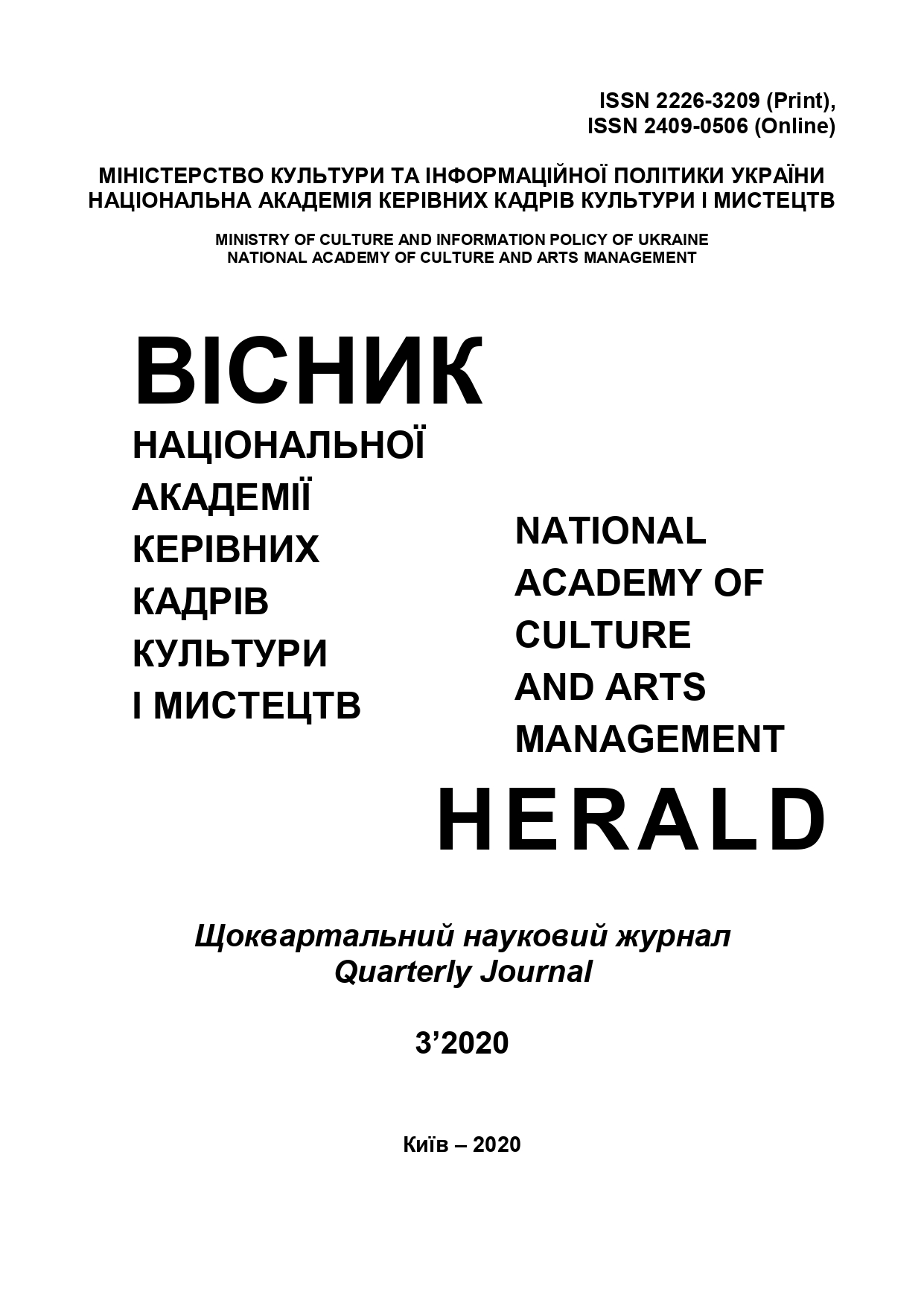Регіональні інституції інтеграції культури пострадянського простору
Regional institutions for the integration of culture post-Soviet space
Author(s): Svitlana KobyukSubject(s): Politics, Cultural history, Recent History (1900 till today), Sociology of Culture, Globalization
Published by: Національна академія керівних кадрів культури і мистецтв
Keywords: culture; politics; globalization; integration; post-soviet space; region;
Summary/Abstract: The purpose of the article is to determine the cultural dimensions of the problem of regional integration processes in the post-Soviet space. Methodology. Research methods comprise the application of a comparative and systematic approach to the analysis of integration processes in the post-Soviet space. Metacultural and multicultural transformations are analyzed as a dialogue of cultures. The scientific novelty lies in revealing the role of regional integration institutions in the context of the formation of post-Soviet cultures. Local modules of integrative processes and cultural signs of integration are determined as an institution for the formation of the post-Soviet space in the context of the formation of political and economic relations. Conclusions. The results of the activities of regional institutions for the integration of independent countries are both counter-fractal, and harmonizing, synthesizing in nature. Implicitly dominant economic, cultural integration is the culture of everyday life, which encourages cultural dialogue in the informal dimension. The culture of everyday life became a unifying integrative factor afterward, which carries the mentality of gomo soveticus. The results of the agreements are explicitly recorded in the regulatory documents of the SDV, GUAM, SCO, and other regional modules of integration processes. Regional initiatives, in contrast to the globalist, integrative and disintegrative trends, are an active factor in harmonizing the intercultural dialogue of independent countries and have shown their viability.
Journal: Вісник Національної академії керівних кадрів культури і мистецтв
- Issue Year: 2020
- Issue No: 3
- Page Range: 28-34
- Page Count: 7
- Language: Ukrainian

